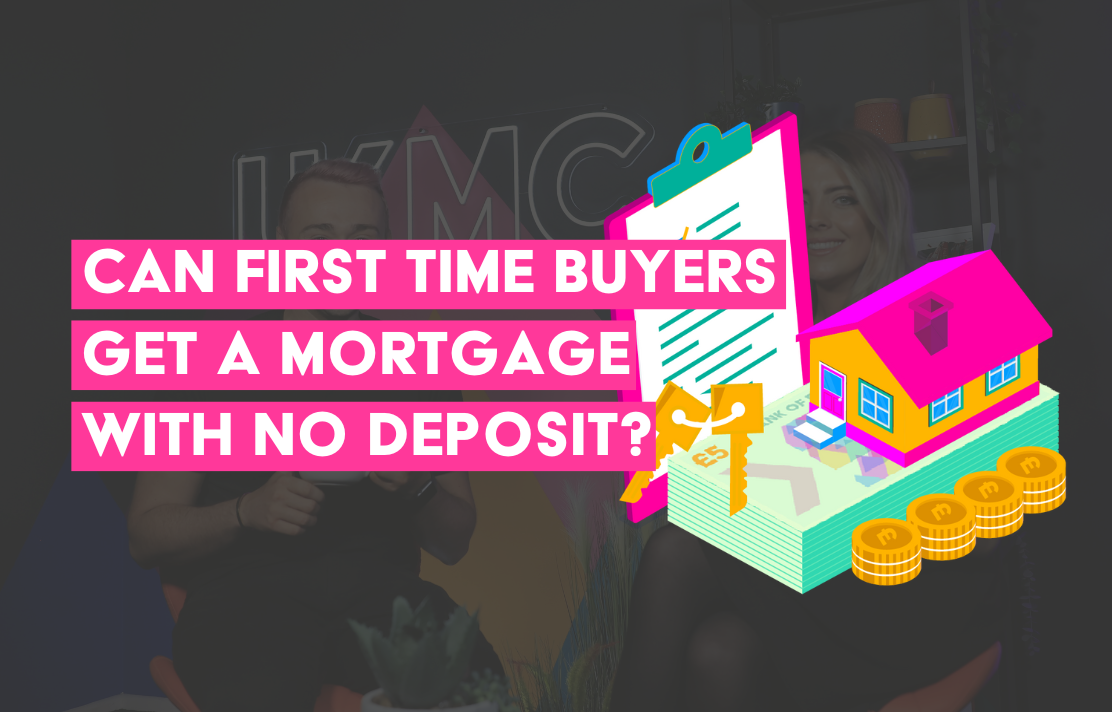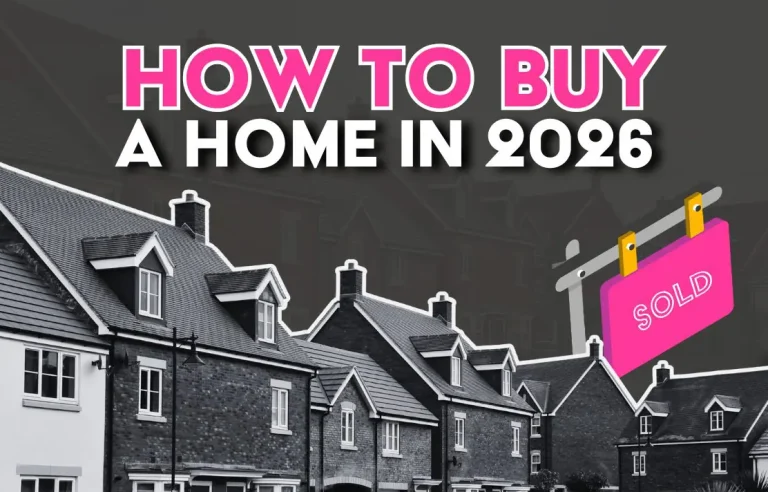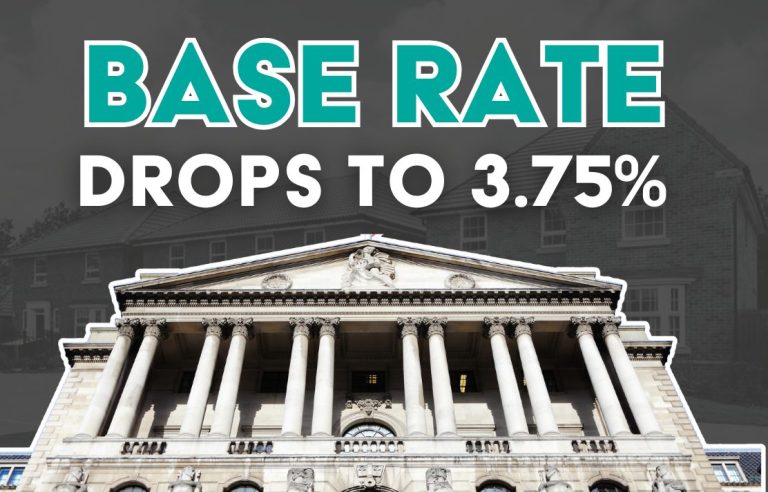Ready to own your home? Learn how 0 deposit mortgages for first-time buyers can help you get started on the property ladder, courtesy of UKMC experts.
Struggling to save a significant deposit for your first home? It’s no secret that there are many associated costs when it comes to buying a property, but none are often bigger than that all-important upfront cash deposit.
Even with years and years of careful saving, shelling out a five per cent deposit for your first home can still feel like an insurmountable task.
Now, with 0 deposit first-time buyer mortgages as an option, you could be moving into your first home sooner than you think.
To help you determine whether a zero-deposit mortgage is a route to home ownership that you should explore, we explain what’s involved in this type of arrangement, the various benefits and, vitally, how easy it is for first-time buyers to actually obtain a zero-deposit mortgage.
What’s a zero-deposit mortgage?
As the name suggests, zero-deposit mortgages, also known as no-deposit, 0 per cent deposit, and 100 per cent loan-to-value (LTV) mortgages, are mortgages where you borrow a loan that covers the entire purchase price of a property.
As a result, you don’t pay any upfront cash deposit.
In the UK, it’s common for those purchasing a property to put down a deposit of between 10 and 20 per cent and cover the rest of the property purchase price with a loan from a lender.
Many first-time buyers also have the option of obtaining a five per cent mortgage, but a zero-deposit mortgage can be instrumental in helping more people to become homeowners.
It’s important to bear in mind that no-deposit mortgages have only been recently re-introduced in 2023, with all lenders having stopped offering these mortgages back in 2008 following the financial crisis.
With this sought-after option now back on the table, are the benefits worth it?
What are the benefits of a zero-deposit mortgage?
Naturally, the biggest benefit of a zero-deposit mortgage is the fact that you don’t need to either put down a hefty deposit or ask someone to be your guarantor.
This makes no-deposit mortgages particularly attractive to renters that struggle to put money away as they spend more on rent each month than they would a mortgage.
Even a five per cent deposit can be difficult to save, especially for aspiring homeowners applying for a mortgage as a sole applicant, so being able to obtain a mortgage with no deposit is essential for helping first time buyers get onto the property ladder.
However, it’s important to bear in mind that zero-deposit mortgages do come with significantly higher interest rates than even five per cent deposit mortgage arrangements.
Lenders offer no-deposit mortgage arrangements with higher interest rates and stricter rules because they’re contributing more money, while the applicant isn’t at risk of losing their own money if they don’t make the repayments.
Generally, however, this means you’ll be paying out more in the long term for a property than if you had put down a deposit. Not to mention, there are stricter rules for being accepted for this type of mortgage, meaning fewer applicants are likely to be accepted due to stringent affordability rules.
If you’re unsure whether the benefits of a zero first-time buyer mortgage deposit outweigh the potential costs, it’s vital that you seek the relevant support.
At UKMC, our team of experienced mortgage advisors can assess your individual needs and financial situation, helping you to identify the best type of mortgage for you.
Is it possible to get a mortgage without a deposit?
Put simply, yes, it is possible to obtain a mortgage without a deposit in the UK.
However, while zero-deposit mortgages do exist in the UK, only select lenders will offer them. Not only that, these lenders will often only offer you a zero-deposit mortgage for a loan that’s no more than 4.5x of your salary (for couples, lenders will offer a loan based on your combined salary).
As a result, you won’t be able to borrow more than the value of the property if you opt for a mortgage with no deposit. The lender will also have a stricter criterion that applicants must meet for them to be considered for this type of mortgage arrangement.
Typically, applicants will need to meet the lender’s ideal applicant credit score and pass crucial affordability checks. As a result, it can be more difficult for buyers, especially first-time buyers or single applicants to pass these affordability checks and obtain this type of mortgage.
Can first-time buyers get a mortgage with no deposit?
Yes, they can! If you’re keen to obtain a first-time buyer mortgage with no deposit, then you’ll be pleased to hear that zero or 0 deposit mortgages for first-time buyers have been recently re-introduced by one big lender.
In May 2023, Skipton Building Society introduced its 100 per cent no-deposit mortgage, specifically designed for renters that are looking for a more accessible route into home ownership.
How to buy a house in UK with zero deposit
Eager to become a 0 deposit mortgage first time buyer yourself, but unsure where to start? While Skipton Building Society’s 100 per cent no-deposit mortgage is a new way of buying a house with zero deposit, there are also many other avenues to owning your own home that also won’t demand a deposit.
To help you understand the various options currently available to you as first-time buyer, we explore some of the different ways that you can become a homeowner for the first time – all without spending years of your life stringently saving.
Zero-deposit mortgages
Skipton Building Society’s zero-deposit mortgage is labelled as their ‘Track Record’ mortgage.
According to the lender, it’s been specially created for first-time buyers (individuals that haven’t owned a UK property in the past three years), who are currently renting and have either no or less than a five per cent deposit.
However, applicants must also be over 21 and able to prove that they haven’t missed any payments on their debts or credit cards within the past six months.
Applicants (sole or joint) will also need to prove they’ve paid full rent for at least 12 consecutive months, within the last 18 months.
To find out more about the potential pros and cons of this zero-deposit mortgage and whether this arrangement is right for you, feel free to arrange a call back from UKMC’s team of expert mortgage advisors today.
If this type of mortgage is a good fit, we can help you to apply and secure the best deal.
Guarantor mortgages
It’s worth bearing in mind, however, that some first-time buyer mortgage no deposit arrangements will require a guarantor instead.
This type of mortgage is more commonly known as a guarantor mortgage and is designed for aspiring homeowners that don’t earn enough to be accepted for a mortgage on their own.
Single applicants, as opposed to couples where both individuals earn a salary, are more likely to apply for a guarantor mortgage. With a guarantor on the agreement, lenders can reduce their risk as the guarantor must repay the borrowed amount if the applicant cannot keep up with their agreed mortgage payments.
Only select lenders will offer guarantor mortgages, so this may make choosing a deal more difficult due to limited options. We can review your options and provide you with professional guidance as to which route might be best – especially for a first-time buyer.
Gifted deposits
If you don’t have your own deposit to fund your homeowner dreams, a family member or friend might suggest a gifted deposit. This is a cash deposit that’s been given to you, either partly or entirely, by another person.
This person is often an individual that you’re close to who has built up enough savings to help out, such as a grandparent, parent, or sibling. A gifted deposit can be as big as 20 per cent or even higher, or it can be added to your existing five per cent deposit to create a more substantial 10 per cent one.
While many lenders will have no issue accepting gifted deposits for properties, some will not. It’s therefore vital that you’re upfront with your mortgage advisor or lender to ensure the house purchasing process goes smoothly.
Remortgaging to release equity from another property
While this no-deposit arrangement wouldn’t be suitable for first-time buyers, it can be a handy way of purchasing more property without saving or selling up!
This route involves releases equity from another property that you own to use a deposit on a new place. To do this, you would need to remortgage your current property.
Personal loans
Another route into home ownership that you may have considered is obtaining a personal loan. However, these loans are also referred to as unsecured loans which can come with significantly higher interest rates and requirements to be paid back over a shorter time period.
In the eyes of lenders, applicants with these personal loans are therefore often seen as higher risk, making them an unattractive applicant. While it’s true that unsecured loans can have a big impact on an applicant’s affordability, some lenders will still consider offering mortgages to these aspiring homeowners.
Credit cards
Credit cards are similar to personal loans in that lenders tend to take a dim view of applicants borrowing funds to use as their deposit. However, credit cards are not often used to make up the entire deposit.
Instead, they are more commonly used to add to cash deposits for those who are concerned about the size of their savings. Just like applicants that use personal loans to boost their deposit, however, fewer lenders may be willing to offer you a mortgage.
Government’s Right to Buy scheme
If you currently rent a council property, but are keen to become a homeowner, then you may want to learn more about the government’s Right to Buy scheme.
Designed to help eligible social housing tenants purchase their council home, this scheme gives them the opportunity to buy the property for either a discounted price or with no deposit, or to use their discount for the deposit.
It’s worth bearing in mind, however, that applications for this scheme are only open to a select group of people. To apply to purchase the property, it should be self-contained, your only or main home, and be ran by a public sector landlord, like a council or housing association for at least three years.
You should also be classed a ‘secure tenant’ which means you benefit from a secure tenancy – a type of UK tenancy created by the Housing Act 1980.
Only a few lenders will work with 0 mortgage first-time buyers to deliver this arrangement, so it’s often worth contacting a specialist advisor.
Expert first-time buyer mortgage advice
As a first-time buyer with many options including a first-time buyer 0 deposit mortgage, it can be difficult knowing which mortgage is right for you.
Between ever-changing government schemes, interest rates, and mortgage arrangements, navigating the confusing world of mortgages isn’t always easy.
Luckily, the team of mortgage experts here at UKMC is on hand to make your road to home ownership a smooth one. Our honest and authentic approach to mortgages means we’ll help you to secure the best mortgage for you, explaining any pros and cons of this arrangement in the process.
Instead of baffling you with mortgage jargon, our down-to-earth team will explain the complete house purchasing process in easy-to-understand terms. Whether you’re concerned about the size of your deposit or feeling overwhelmed by your lender options, we can help.
To learn more about the first-time buyer services available at our family-run business and how we can help you get the keys to your very first home, feel free to book your appointment with one of the experienced mortgage advisors at UKMC today.
If you’d like to discuss your first-time buyer mortgage requirements with a member of our team before booking your appointment, simply request a call back at a more convenient time. For those who prefer to have a face-to-face conversation and live in the Cheshire area, we welcome visits to our Warrington Office.
Disclaimer
UK Mortgage Centre Limited is an Appointed Representative of Refresh Mortgage Network Limited. Refresh Mortgage Network Limited is authorised and regulated by the Financial Conduct Authority. We are entered on the Financial Services Register under firm number 1019794.
As a mortgage is secured against your home, it could be repossessed if you do not keep up the mortgage repayments. The Financial Conduct Authority does not regulate some forms of buy-to-let mortgages.
The Financial Conduct Authority does not regulate will writing and taxation and trust advice.
You may be charged a fee for your advice. A typical fee is £495, which would be payable when you receive your mortgage offer. Your dedicated advisor will discuss this further on your free initial phone call.
Registered company number: 15825320
[contact-form-7 id=”141c74e” title=”Contact form Enquiry”]






